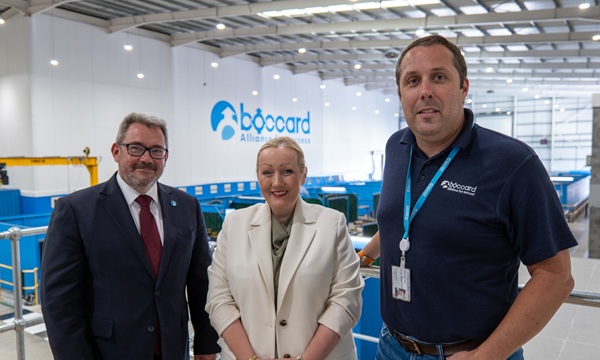At a time when businesses have been reassessing the relative merits of office, hybrid and home working, global technology consultancy Thoughtworks commissioned research to explore how 2,000 employees rated British businesses for supporting diversity and inclusion issues in the workplace – specifically, whether they thought British businesses were doing enough on DEI, which groups needed to be better supported, and in which industry sectors the most and least progress had been made.
The results revealed that seven in ten UK businesses need to do more to support DEI in the workplace – with many areas needing review.
- Only 28% of employees think UK businesses do enough to support diversity, equity and inclusion (DEI) in the workplace, and this falls to just 11% among young workers (aged under 25)
- Disability topped the poll. Two in five respondents (40%) believed British business decision makers needed to do more to improve inclusion, equity and diversity programmes to support employees with disabilities.
- Social mobility was also seen as a key area for improvement, with many people believing that UK businesses needed to do more to help people from lower income families (39%) and socially deprived areas (31%).
- Meanwhile, age discrimination in the workplace was a concern for 30% of respondents. This was felt most strongly among those aged 55 or over (36%).
- 8% of survey respondents want to see businesses do more to improve DEI policies towards young families. A further 27% felt further progress could be made to better support single parents and those that were pregnant (16%).
- Gender discrimination was a concern for around a quarter of British workers. Tellingly, women were almost twice as likely than men (31% vs 17%) to cite the need for businesses to do more in this area to improve their inclusive, diversity and equity policies.
- Nationally, 20% of survey respondents still believe UK businesses need to do more to improve their DEI programmes to better support colleagues from the LGBTQ+ community. Younger workers were significantly more likely to say that businesses needed to improve their inclusion and diversity policies for this community (31% for under 35s vs. 12% for the over 55s).
- Nationally, 17% of people thought businesses still needed to further improve equity and inclusion on race and ethnicity issues and this was of primary importance (29%) for younger workers (aged under 25) and, regionally, was a viewpoint most strongly held in London (25%).
Reviewing the research findings by specific industries, sport (24%) the arts (music and film) (24%) and retail (22%) were the sectors where people believed organisations had made the most progress in advancing inclusion, equity and diversity for their employees. The tech sector ranked 8th and banking 11th – whilst motoring and agricultural sectors came last. Overall, 35% of respondents believed insufficient progress had been made in all the industry sectors listed.
DEI leadership and business leadership
The research from Thoughtworks also makes clear the business case for companies to invest in their Diversity Equity and Inclusion (DEI) efforts. Around half (48%) of companies expecting significant growth in the next 12 months were also viewed by their staff to be leaders in the sector across a range of DEI issues, compared with 14% of businesses that expected to scale back in the next year. Over half (52%) of these growing companies were viewed by their staff to be ahead of the competition on areas of representation and people policy (compared to 10% of contracting businesses), while just under half were ahead on pay and equitable opportunity (48% versus 16% of struggling businesses), allyship and understanding (46% versus 14%), and recruitment (46% versus 14%).
Amy Lynch, Head of Diversity, Equity and Inclusion at Thoughtworks UK commented:
“For many businesses, the future of work has been centred on location – the relative merits of home, office or new hybrid models. However, it's clear that it is more about how people work – and here the issues of diversity, equity and inclusion become pivotal considerations. Our study suggests British workers believe there is still a long way to go for most businesses – and the scale of groups and issues that need to be better understood is significant. Business leaders need to embrace a strategic response to this, to adopt processes that allow them to embed DEI issues in their culture and daily decision-making. This is why, at Thoughtworks, we are establishing a DEI Council that we believe could become a benchmark for best practice in the tech sector and beyond.”
Thoughtworks has launched a DEI council that will work alongside the UK management team to ensure inclusion, equity and diversity are rooted at the heart of strategic business decision making, culture and processes. The move, which further reaffirms Thoughtworks’ position as a sector leader for a range of inclusion and diversity issues, will enable Thoughtworks to share best practice with its clients and leaders from other sectors, supporting the firm’s positive and lasting social impact. The DEI council already has representation across age, race, gender, disability, faith, sexuality, neurodiversity, social mobility, mental health as well as working parents and people who moved to the UK.







